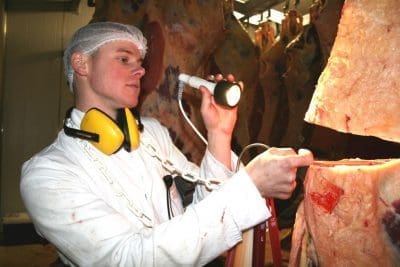THE AusMeat Language used across all elements of Australia’s beef industry will be modernised to ensure greater consistency and better reflect consumer requirements, as part of the industry’s response to the Beef Language Review White Paper.
 The Beef Language Review was initiated by the industry peak councils – the Australian Meat Industry Council, Australian Lot Feeders Association and Cattle Council of Australia – and examined how developments in science and technology and growing consumer understanding might reshape the language used across the Australian beef industry.
The Beef Language Review was initiated by the industry peak councils – the Australian Meat Industry Council, Australian Lot Feeders Association and Cattle Council of Australia – and examined how developments in science and technology and growing consumer understanding might reshape the language used across the Australian beef industry.
The Beef Language was first developed in the 1980s and while enhancements have been made to the language over time, the review represents the first whole-of-chain approach to ensure the Language will continue to effectively deliver information transfer at all points from ‘conception to consumption.’
The review addressed the need to ensure that the AusMeat Language continues to serve the needs of both international and domestic customers, who rely on it to deliver on their commercial trading requirements.
Broadly, the White Paper:
- Recommended potential future changes to the AusMeat Language in light of current and future developments in science and technology, customer requirements and international market access requirements
- Considered existing and potential new descriptors (objective and subjective) at each stage in the red meat value chain – production, processing, wholesaling, retailing, consumption and future regulatory requirements, and
- Developed a range of future Language options, tested those against a range of trading situations and proposed a preferred option for industry.
Following a period of consultation and review of the 46 recommendations from the White Paper, industry, through a working group involving AMIC, ALFA, CCA and Meat & Livestock Australia, has reached a consensus position in response to all recommendations and will now go about implementing those outcomes.
A short sample of just some of the 46 industry responses (more scrutiny on Beef Central in the fullness of time after Easter):
- The industry supports the white paper recommendation that MSA grading data be monitored statistically to identify possible variation in grading results and enable early action to monitor and re-train graders where appropriate. MLA will develop this work and report to the MSA Beef Taskforce
-
The industry does not support moving from the use of the controversial *A* cipher, to a proposed alternate cipher term, such as *ANY*. The *A* cipher is a catch-all for virtually any beef regardless of age or condition, and was originally adopted simply to represent “Australia”. However it comes under frequent criticism for causing confusion, suggesting *A* refers to standard of quality. The industry response in today’s report is that the stakeholders are “willing to work through the issue to find an alternative solution, but further work by the industry committees and peak industry councils is required to resolve the issue.”
- The white paper recommended that consideration be given to adopting UNECE production and feeding system description codes to facilitate phasing out the use of ‘grassfed’ as a generic description for
not grain-fed, and include a new specified ‘exclusively pasture or forage fed’ cipher. This recommendation was not supported by industry as it is written; however, the industry committed to resolving animal raising claims for the whole of industry. It will be further progressed through the Animal Raising Claims working group
-
The white paper recommended that the current dentition and days on feed (DOF) eligibility component for grainfed ciphers be replaced by a definition requiring despatch from an National Feedlot Accreditation Scheme accredited feedlot having been fed a high-energy ration for a specified number of days, and be eligible for MSA grading. The industry response to this was that further work is required before this recommendation can be progressed. This recommendation will be progressed with the peak industry councils and the relevant industry committees.
Cattle Council spokesman David Hill said the outcomes presented an exciting opportunity for Australia’s beef industry to provide clear and consistent language that’s relevant across the entire value chain.
Australian Meat Industry Council’s Peter Greenham said if the beef industry was to remain domestically and internationally competitive, it needed to ensure it is responsive to the needs of customers and consumers.
Australian Lot Feeders Association spokesman Grant Garey said the Language used must be relevant to the customer, efficiently and accurately describe the industry’s products, be easy to understand and practical to implement.
Importantly, a key outcome from the review will be ensuring consistency across all components of the value chain to provide increased transparency and confidence to the industry – from production to consumer.
The Peak Industry Council representatives said the project had been a shining example of industry collaboration to achieve outcomes that will benefit Australia’s broader red meat industry.
The implementation of the recommendations will be progressed predominantly by three relevant established industry committees – the Meat Standards Australia Beef Taskforce, the Australian Meat Industry Language and Standards Committee and key MLA programs including the Objective Carcase Measurement Rural R&D for Profit program and the Digital Value Chain Strategy. Each will regularly report back to the Beef Language Review industry working group.
More scrutiny of industry responses to the white paper findings after the Easter break.
- To read the Beef Language Review White Paper in full click here
- To view the industry working group’s response to each recommendation, click here.
- For more background information about the Beef Language Review White Paper, click here.
Sources: MLA, AMPC, CCA, ALFA, AMIC



HAVE YOUR SAY